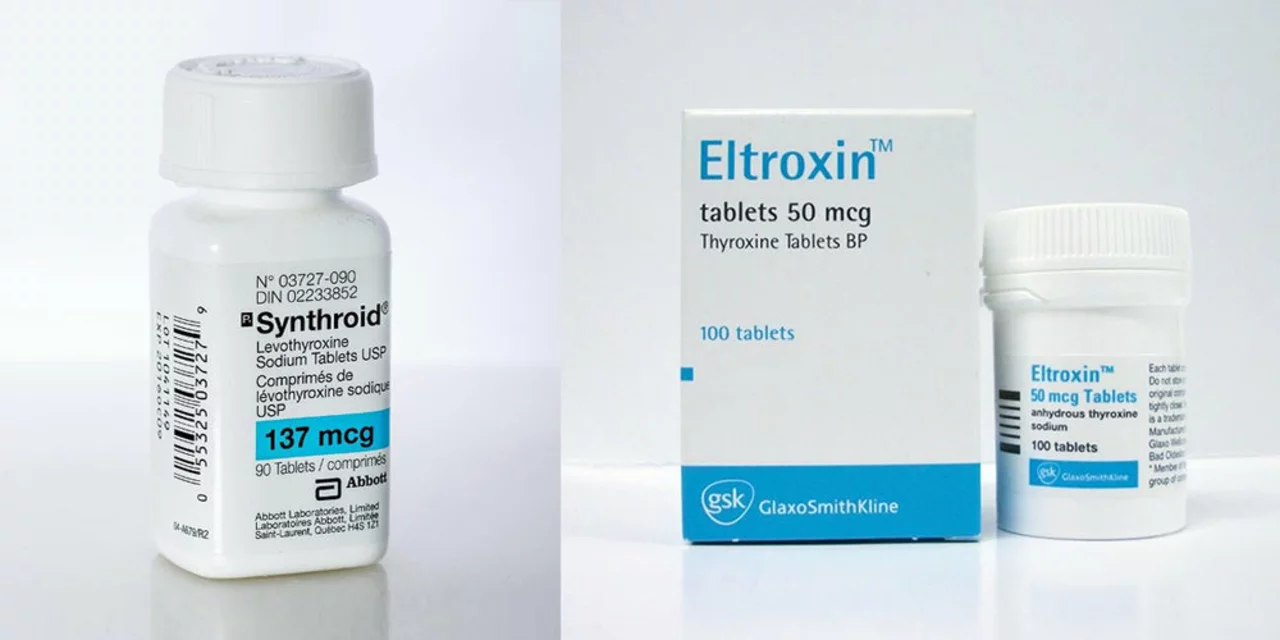If your thyroid is acting up, you want straightforward info that helps now — not academic fluff. This page pulls together practical advice on thyroid meds, alternatives to Synthroid, helpful supplements, and safe ways to buy or compare medicines. Read the quick tips below, then jump to the full articles linked here when you want deeper info.
Keep your levothyroxine routine consistent: take it on an empty stomach 30–60 minutes before breakfast or at bedtime 3–4 hours after eating. Don’t mix it with calcium, iron, or certain antacids — wait at least 4 hours. If you switch brands or pharmacies, get your TSH checked 6–8 weeks later. If you’re pregnant or planning pregnancy, tell your doctor — thyroid needs often change.
Watch for these signs that need a doctor: sudden weight change, intense fatigue that won’t lift, heart palpitations, neck swelling, or major mood shifts. For hyperthyroid symptoms like fast heartbeat or heat intolerance, seek urgent care. For slow thyroid (hypothyroid) symptoms like cold intolerance and hair thinning, your GP or an endocrinologist can adjust doses or run more tests.
Levothyroxine (Synthroid, generic levothyroxine) is the usual first choice. Some people explore alternatives: natural desiccated thyroid (NDT), combination T4/T3 products, or prescription tiratricol. Tiratricol appears on our site as a supplement some people try; treat it with caution and discuss with a clinician because it affects hormones and may need careful monitoring.
Thinking about NDT or T3-containing meds? Expect closer monitoring and possible dose tweaks. If you have heart disease, older age, or other serious conditions, doctors may start lower and move slowly. Supplements like selenium or zinc can help in specific cases but don’t replace meds — ask a clinician before starting any new supplement.
Buying meds online? Use licensed pharmacies, check reviews, and avoid sites that don’t require a prescription for prescription drugs. Our articles cover safe options and red flags to watch for when ordering thyroid meds and other prescriptions.
Want specific reads? Check these posts on this tag: “6 Alternatives to Synthroid for Thyroid Hormone Replacement” — a clear breakdown of options and what to expect; “Unlocking the Benefits of Tiratricol” — practical notes on a popular supplement; and “Premarin: Uses, Side Effects, and Safety Tips” — helpful if you’re managing hormones more broadly. Each article gives next steps: what tests to ask for, when to get lab checks, and what to watch for after changes.
If you keep notes on symptoms, dose changes, and lab dates it will make follow-ups much easier. Small changes matter: consistent timing, avoiding interactions, and routine blood tests are the simplest ways to keep your thyroid treatment on track. If something feels off, call your clinic — don’t wait for the next scheduled appointment.

As a woman going through menopause, I've discovered that it's essential to understand the relationship between levothyroxine and menopause. Levothyroxine is a medication commonly prescribed to treat hypothyroidism, which can often occur during menopause. It's important to monitor our thyroid levels during this time, as symptoms of hypothyroidism can be similar to those of menopause, making it difficult to differentiate between the two. By staying informed and working closely with our healthcare providers, we can ensure proper treatment and management of both conditions. Ladies, let's not forget to take care of our overall health during this significant life transition.
CONTINUE READING